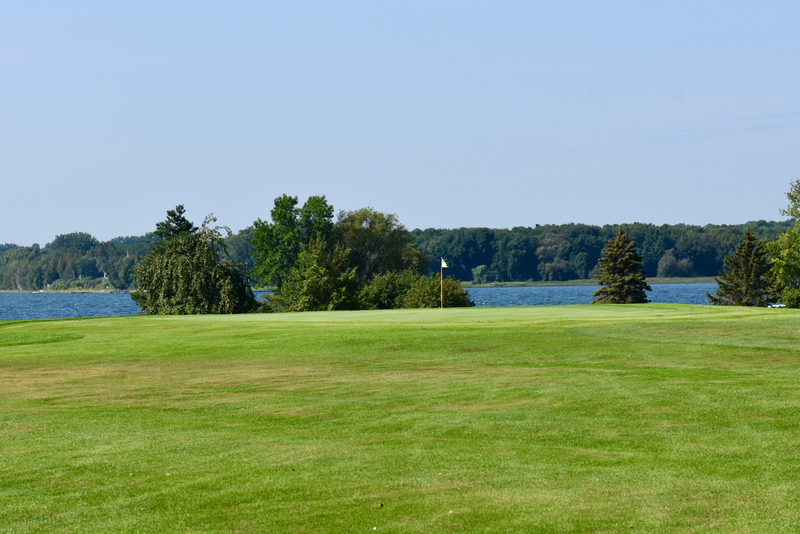Does the following report sound familiar?
"Slower home sales have driven residential developers to sell the amenities they once counted on to hasten land sales and raise prices - their golf courses."
That is the lead sentence in a
New York Times article...from March 15, 1992. It could as easily be in today's paper. Golf courses and, indeed, entire golf course developments are coming on the market, being sold, and then being replaced by more courses for sale. This is not surprising given the slowdown in the purchase of club memberships and golf community homes as potential buyers find it harder and harder to sell their primary houses. You may recall that the early ‘90s was the last big housing recession in the U.S., and history is repeating itself today (with the extra trickle-down effects of the "sub-prime lending" mess).
That 15-year-old article was authored by Lyn Riddle, who also wrote that, "Many of the distressed golf-course developments are in the South, particularly in Florida and in the Carolinas, where nearly three-fourths of all golf courses built in the last few years were conceived as fixtures for housing developments." That seems to be the case today based on a scan of courses listed by a few national brokerages and consolidators.
One of them,
Prime Sites USA , which lists all sort of businesses for sale online, includes 10 courses at its web site, five of which recently sold. Six of the 10 are in Florida, including a resort in the Florida Panhandle listed for $12 million, the highest asking price of Prime Sites' listings.
Coldwell Banker's National Golf Course Sales organization provides a far longer list at its site. We counted 56 courses for sale or under contract, but according to Kathy Bissell, VP-National Golf Sales, as many as 200 are for sale at any given time.
"We have a listing for a nine-hole course for a half million dollars," says Ms. Bissell, and others that range well up into the million. There is a wide range of properties in between, including a central Illinois course for less than $600,000 and another near Raleigh/Durham, NC for around $700,000. These are prices one might expect for a nice home on a golf course, not the golf course itself.
Not every decision to sell a course is strictly financial. "Some are family owned," says Ms. Bissell, "and the owners are just tired of running the course. In other cases, the course is one of many owned by a company and they are just trying to peel off some of their assets."
The reasons people buy courses are equally varied, according to Ms. Bissell. Some people just want to run a golf course and figure they are going to do it better than the people selling it to them. In many cases, these tenderfoots are not prepared for how difficult and complicated golf course operation is, and they wind up selling out in a few years. Others are all about business, like the southern Mississippi group that recently sold a nine-hole course, plus a few attached residential lots, for just under $1 million.
"The group had bought it after [Hurricane] Katrina," she says, "fixed it up over a couple of years and then sold it." She doesn't know what they paid for it originally, but "it must have been very low if they sold it for less than a million."
An investment in a golf course is risky business, especially if the buyer's intention is to plow it over and build housing. Major builder D.R. Horton, which ought to know better, bought the Bay Meadows course near Jacksonville with that intention, and with a nod and a wink from town planners, that they could build homes where fairways and greens once stood. Horton paid more than $3 million for the course, made their application for rezoning and then watched their investment go to pieces when local townspeople rose up as if a Walmart were coming, complaining that an already bad traffic situation on the local highways would be much worse with the increased population. The local mayor, taking the temperature of his constituents, nixed the deal, a $3 million lesson for Horton.
You would think that the weakness of the dollar would be driving offshore investment in U.S. golf courses, and Ms. Bissell says she is seeing some of that, with recent inquiries from South Africa, the United Kingdom and Asia. Foreign laws are also contributing to added interest in U.S. golf courses.
"Korean laws," Ms. Bissell says, for example, "put a cap on the amount its citizens can invest in their own country. Many are turning to the U.S. and our golf courses."
We noted what seemed like a disproportionate number of Florida courses for sale, mindful that there are a disproportionate number of Florida courses to begin with. According to Ms. Bissell, more courses in the Midwest seem to be on the market currently.
"There was a lot of action [a few years ago] in North Carolina," she adds, "but that seems to have died down."
Hedge Fund Millionaires Alert: If you are not content with owning that nine-holer in East Jabip, Coldwell Banker will be happy to set you up with a pair of courses currently on the market in Nevada. Asking price is $20 million, but we bet they'll take $19 million.























